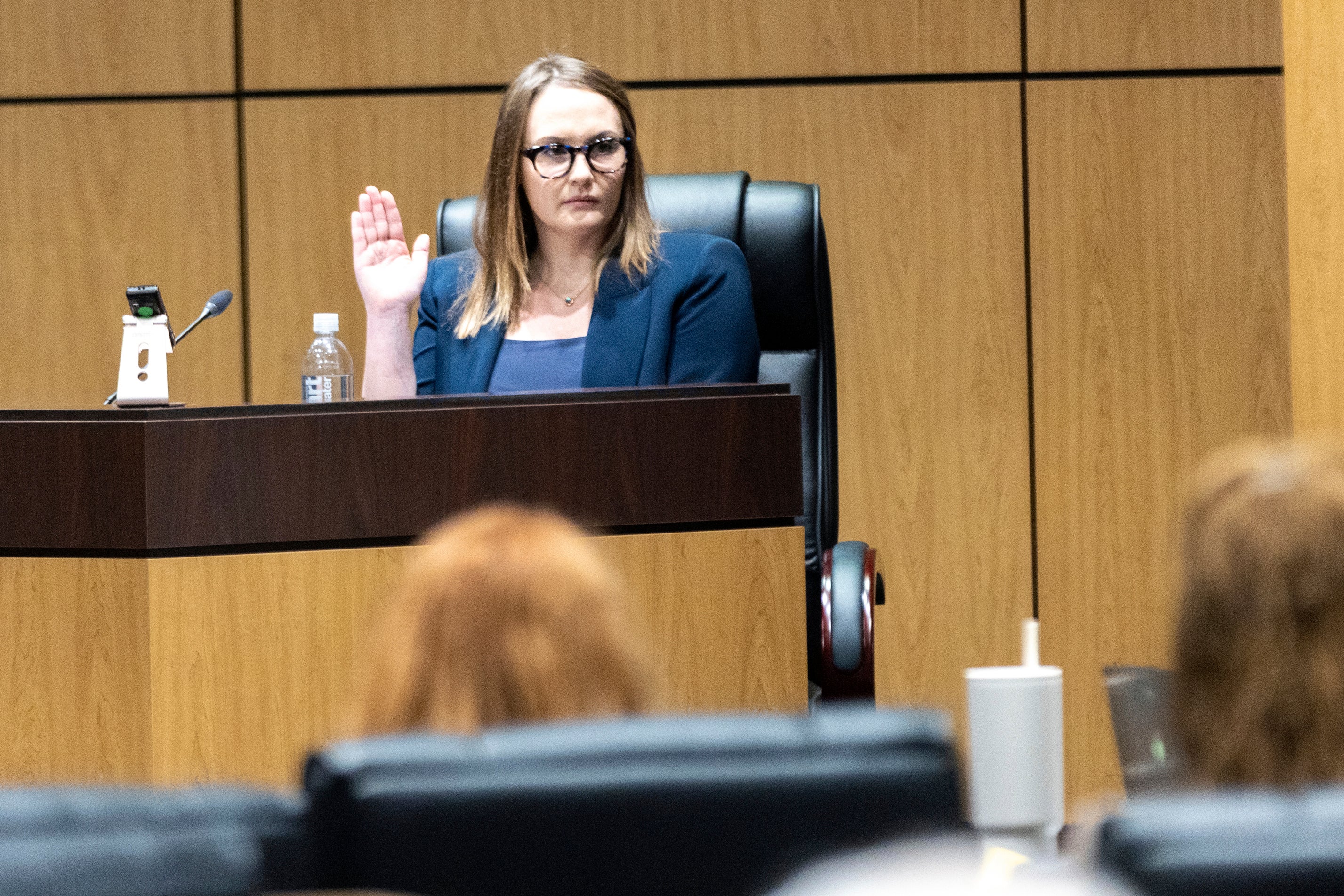Georgia board upholds firing of teacher for reading a book to students about gender identity
The firing of a suburban Atlanta teacher who read a book on gender fluidity to her fifth grade class has been upheld by the Georgia Board of Education

Your support helps us to tell the story
From reproductive rights to climate change to Big Tech, The Independent is on the ground when the story is developing. Whether it's investigating the financials of Elon Musk's pro-Trump PAC or producing our latest documentary, 'The A Word', which shines a light on the American women fighting for reproductive rights, we know how important it is to parse out the facts from the messaging.
At such a critical moment in US history, we need reporters on the ground. Your donation allows us to keep sending journalists to speak to both sides of the story.
The Independent is trusted by Americans across the entire political spectrum. And unlike many other quality news outlets, we choose not to lock Americans out of our reporting and analysis with paywalls. We believe quality journalism should be available to everyone, paid for by those who can afford it.
Your support makes all the difference.The firing of a Georgia teacher who read a book on gender fluidity to her fifth grade class was upheld Thursday by the Georgia Board of Education.
Katie Rinderle had been a teacher for 10 years when she got into trouble in March for reading the picture book “My Shadow Is Purple” by Scott Stuart at Due West Elementary School, after which some parents complained.
The case in suburban Atlanta's Cobb County drew wide attention as a test of what public school teachers can teach in class, how much a school system can control teachers and whether parents can veto instruction they dislike. It also came amid a nationwide conservative backlash to books and teaching about LGBTQ+ subjects in school.
Rinderle has maintained that the book was about inclusivity. She was fired in August, and filed an appeal the next month.
At their meeting Thursday, the state board voted unanimously to affirm the Cobb County School Board’s decision without discussing it, The Atlanta Journal-Constitution reported.
Cobb County adopted a rule barring teaching on controversial issues in 2022, after Georgia lawmakers earlier that year enacted laws barring the teaching of “divisive concepts” and creating a parents’ bill of rights. Rinderle's attorneys said a prohibition of “controversial issues” is so vague that teachers can never be sure what’s banned.
In its 21-page review, the board found that Cobb County’s policies are not “unconstitutionally vague,” and that her firing was not a “predetermined outcome.”
Georgia law gives either Rinderle or the school district 30 days to appeal the decision in Cobb County Superior Court.
Meanwhile, Rinderle and the Georgia Association of Educators are suing the district and its leaders for discrimination related to her firing. The complaint filed last week in U.S. District Court in Atlanta, alleges that the plaintiffs “have been terminated or fear discipline under (Cobb’s) vague censorship policies for actively and openly supporting their LGBTQ students.”
In the months since Rinderle was fired, the Cobb County School District has removed books it has deemed to be sexually explicit from its libraries, spurring debate about what power the district has to make those decisions. Marietta City Schools took similar steps.
This year’s ongoing legislative session has brought with it a series of bills that seek to cull sexually explicit books from schools, ban sex education for younger students, display the Ten Commandments in classrooms and allow religious chaplains to counsel teachers and students.